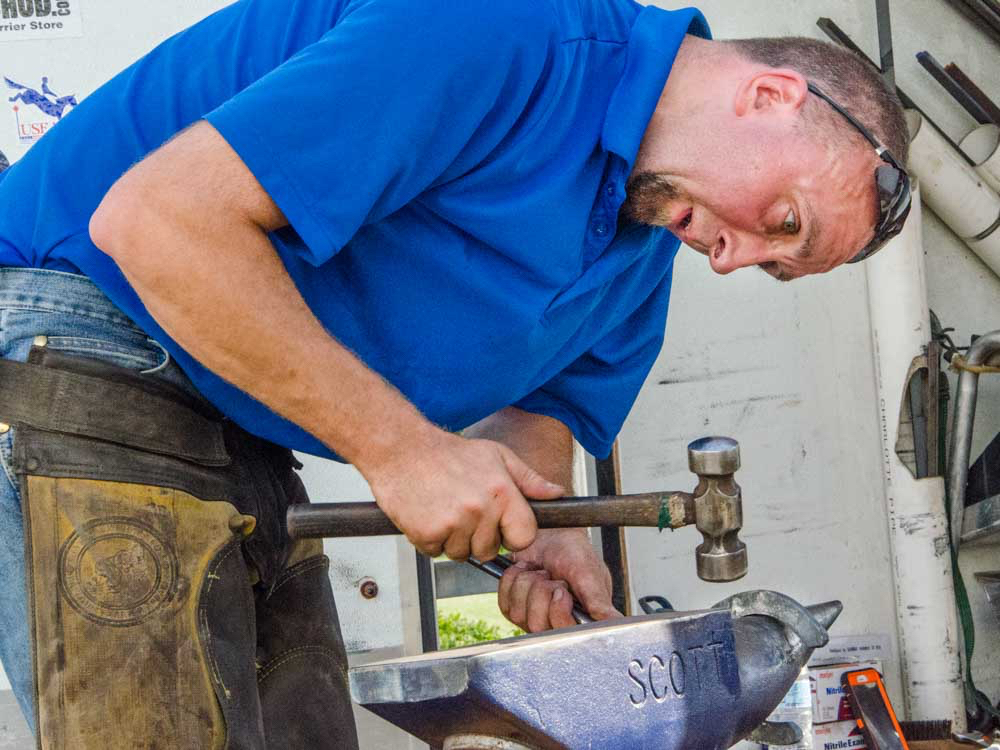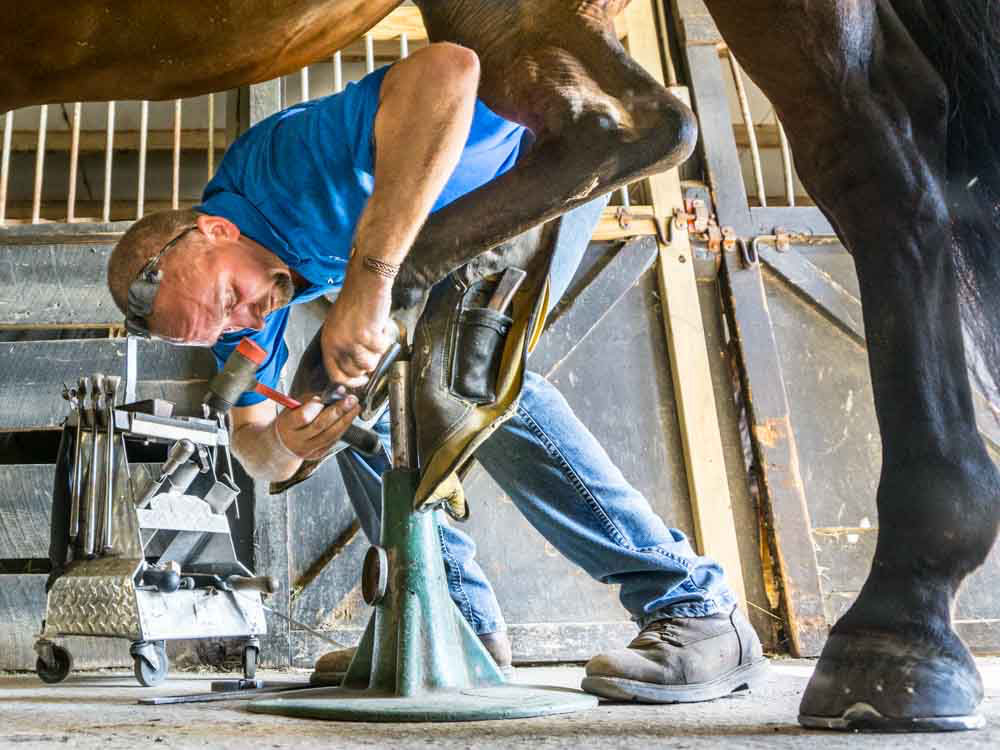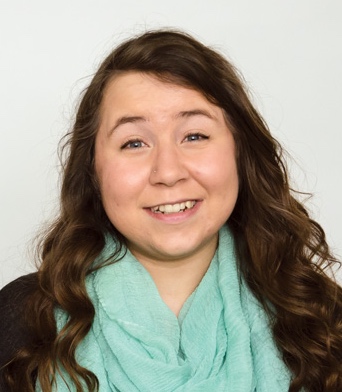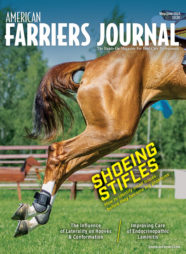Pictured Above: MSU farrier instructor David Hallock works under a horse.
For the first time since the 1950s, Michigan State University (MSU) will operate a farrier school. Dansville, Mich., farrier David Hallock will be the instructor.
“Having MSU re-enter hoof-care education is sort of a homecoming,” Hallock says. “They used to have one of the best farrier programs in the U.S. and we are hoping to return to that point.”
MSU will operate the only farrier school in the state since the closing of Wolverine Horseshoeing School several years ago.
“Having a school in the state will open up the possibility to attend school to those who, for one reason or another, find it difficult to travel,” Hallock says.
According to a 2007 survey by MSU, the Michigan Horse Council and the National Agricultural Service, there are 155,000 horses in Michigan — and thus fertile ground for hoof-care professionals.
“People at the university have been waiting to restart the farrier program for a long time,” he says. “They have decided to move forward, and I was delighted that they asked me to be the lead instructor.”
An alumnus of MSU’s Horse Management Program, Hallock has been shoeing since 2000 and operates 3R Forge in Dansville. He holds certifications from American Farrier’s Association, Farrier International Testing System and the Worshipful Company of Farriers.
According to Hallock, the school is not currently planning to offer farrier services to outside clients. But the students will get plenty of hands-on work — the equine tradition is rich at MSU, home to one of the oldest Arabian breeding programs in the country.
“There will be more hands-on than classroom,” he says. “That is not to say that the classroom will be overlooked, because anatomy study will be fundamental in the well-rounded farrier and students will need to be well-versed in anatomy to graduate.

Important aspects of the program include addressing the business side of farriery.
“We are looking at having students take part in an equine-specific business class as part of the program, as business studies is something that seems to be lacking from farrier schools throughout the country.”
MSU will offer both a 12- and 24-week program at their Horse Teaching and Research Center. Each course will run 8 hours per day. The total cost to attend the school is estimated to be $11,950 for the 12-week course and $17,950 for the 24-week program.
Hallock explains that the 24-week program “will require students to be more proficient in their forge work, trimming skills and anatomy knowledge,” while the 12-week program provides a foundation for this knowledge.
“Twelve weeks is the shortest program length that I am willing to be associated with because programs shorter than 12 weeks do not benefit or do justice to the students,” he says.
With this variety of experience available for students, Hallock’s goal is “for the program is to make it one of the most comprehensive programs in the U.S,” he says.
MSU plans to keep its program small.
“We will not produce the most students annually, but hopefully we will be producing some of the best, most well rounded, new farriers into the industry every year,” he says. “I am most looking forward to the opportunity to get students started on a career that I love and has given me so many opportunities.”
Interested students can apply on the MSU website or print and mail the application. Questions can be directed to Hallock at 3rforge@gmail.com or coordinator Dr. Karen Waite at kwaite@msu.edu.









Post a comment
Report Abusive Comment